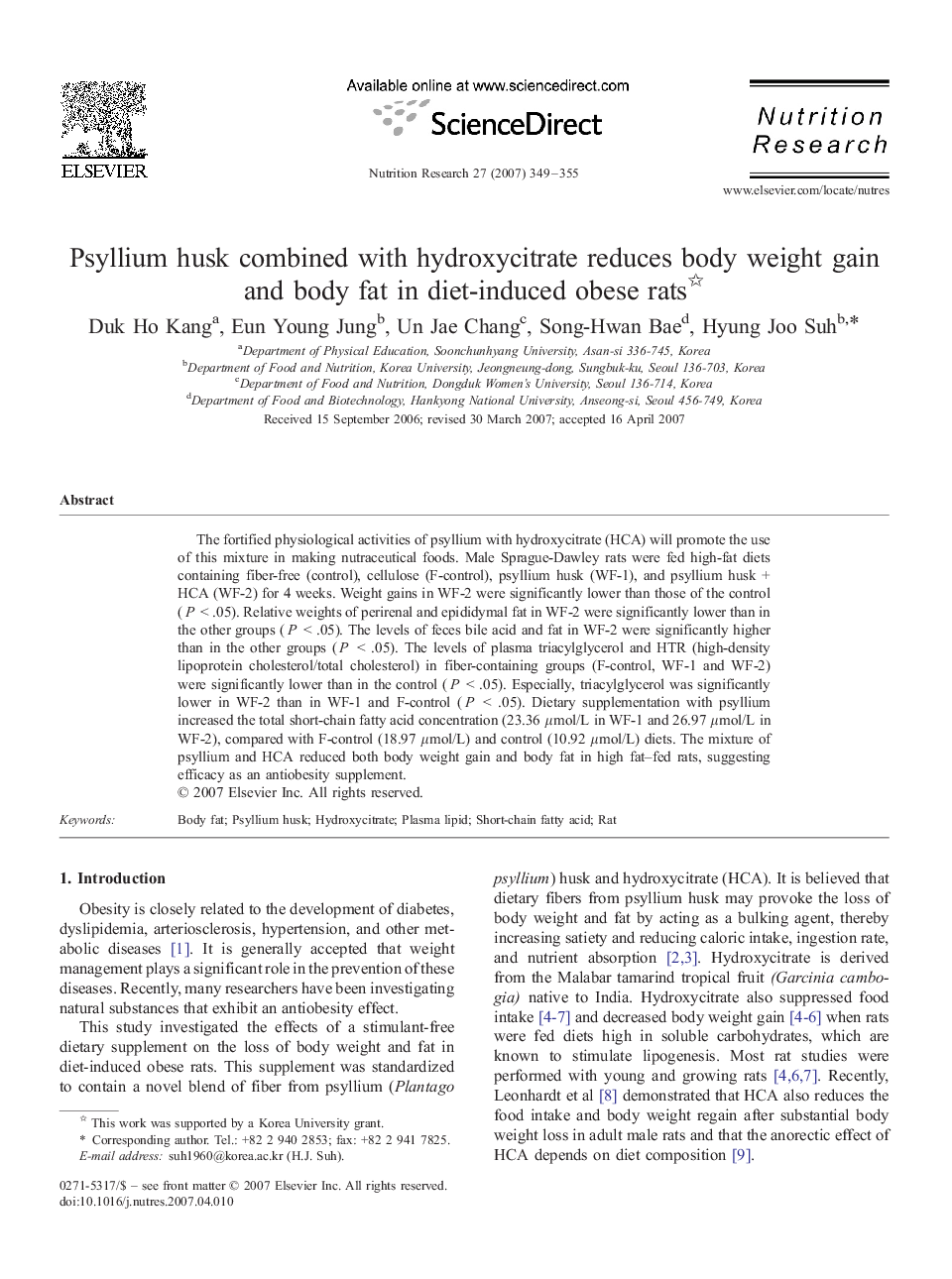| Article ID | Journal | Published Year | Pages | File Type |
|---|---|---|---|---|
| 2809798 | Nutrition Research | 2007 | 7 Pages |
The fortified physiological activities of psyllium with hydroxycitrate (HCA) will promote the use of this mixture in making nutraceutical foods. Male Sprague-Dawley rats were fed high-fat diets containing fiber-free (control), cellulose (F-control), psyllium husk (WF-1), and psyllium husk + HCA (WF-2) for 4 weeks. Weight gains in WF-2 were significantly lower than those of the control (P < .05). Relative weights of perirenal and epididymal fat in WF-2 were significantly lower than in the other groups (P < .05). The levels of feces bile acid and fat in WF-2 were significantly higher than in the other groups (P < .05). The levels of plasma triacylglycerol and HTR (high-density lipoprotein cholesterol/total cholesterol) in fiber-containing groups (F-control, WF-1 and WF-2) were significantly lower than in the control (P < .05). Especially, triacylglycerol was significantly lower in WF-2 than in WF-1 and F-control (P < .05). Dietary supplementation with psyllium increased the total short-chain fatty acid concentration (23.36 μmol/L in WF-1 and 26.97 μmol/L in WF-2), compared with F-control (18.97 μmol/L) and control (10.92 μmol/L) diets. The mixture of psyllium and HCA reduced both body weight gain and body fat in high fat–fed rats, suggesting efficacy as an antiobesity supplement.
